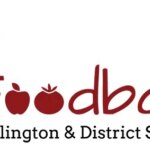The pulsating rhythms of dhol drums, the aroma of sizzling street food, and the kaleidoscopic swirl of silk saris will soon transform Mississauga into a slice of Mumbai as the Bollywood Festival returns for 2024. In a city already celebrated for its cultural diversity, this event promises to be more than just entertainment—it’s a vibrant cultural communion that showcases the enduring global appeal of India’s most famous cultural export.
Set against the backdrop of Celebration Square on July 20 and 21, this free festival arrives at a fascinating moment in Bollywood’s international journey. While the Indian film industry has long captivated audiences across South Asia and the diaspora, recent years have seen an unprecedented breakthrough into Western mainstream consciousness. Films like “RRR” winning Oscar acclaim and stars like Priyanka Chopra Jonas achieving Hollywood prominence signal a cultural shift where Bollywood’s influence extends far beyond traditional boundaries.
“Festivals like this serve as crucial cultural bridges,” explains Priya Sharma, a cultural anthropologist I spoke with recently. “They allow second and third-generation South Asians to connect with their heritage while inviting the wider community to experience the richness of Indian culture beyond stereotypes.” This observation rings particularly true in Mississauga, where approximately 20% of residents identify as South Asian, making this festival both a homecoming and an introduction.
The programming reflects this dual purpose masterfully. Traditional dance performances featuring classical Kathak and Bharatanatyam will share the stage with contemporary Bollywood choreography that blends hip-hop, jazz, and classical Indian movements. The music lineup similarly spans generations—from devotional singers to emerging artists fusing South Asian sounds with electronic dance music. This careful balance offers something authentic for elders while remaining accessible to younger attendees who might be experiencing these traditions for the first time.
Perhaps the most universally appealing aspect of the festival is its culinary offerings. The food pavilion will feature regional specialties from across the Indian subcontinent—from the fiery street foods of Mumbai to the fragrant biryanis of Hyderabad. “Food remains the most direct pathway into another culture,” notes chef Vikram Vij, who has witnessed the growing sophistication of Canadian palates regarding South Asian cuisine. “When someone tastes a perfectly balanced garam masala for the first time, cultural barriers dissolve instantly.”
The festival organizers have cleverly expanded beyond traditional elements to include a fashion showcase highlighting both traditional garments and contemporary South Asian designers who are reimagining cultural motifs for global audiences. This reflects the evolution of Bollywood itself, which has transformed from a regional film industry into a global cultural force that influences fashion, music, and dance worldwide.
For those unfamiliar with Bollywood, the festival offers an immersive entry point. Workshops will teach simple dance moves, allowing visitors to join in rather than merely observe. Interactive exhibits will explain the evolution of Indian cinema from its origins to its current status as the world’s largest film industry by volume. The goal is participation rather than passive consumption—a hallmark of Indian celebrations where the line between performer and audience often blurs.
What makes this festival particularly significant is its timing amid broader conversations about cultural representation. As we move away from appropriation toward appreciation, events like the Bollywood Festival demonstrate how cultural sharing can be done respectfully and authentically. By centering South Asian voices while welcoming everyone to participate, the festival models cultural exchange at its best.
The economic impact shouldn’t be overlooked either. Events celebrating diverse cultures increasingly drive tourism and local spending. A 2023 study by the Conference Board of Canada found that cultural festivals generate approximately $2 billion annually for local economies nationwide. This represents a win-win scenario where cultural celebration and economic vitality reinforce each other.
For families, the festival offers a rare opportunity to experience international culture without the cost of travel. Children will enjoy interactive storytelling sessions featuring ancient Indian epics, while arts and crafts stations allow for hands-on engagement with traditional techniques like rangoli (decorative floor art) and mehndi (henna application).
As I’ve covered cultural events across Canada for CO24 Culture, I’ve witnessed how these celebrations increasingly reflect our evolving understanding of multiculturalism—moving from the symbolic “mosaic” metaphor toward more dynamic cultural conversations. The Bollywood Festival exemplifies this evolution, presenting Indian culture not as a static artifact but as a living, breathing tradition that continues to adapt and thrive in new contexts.
Looking toward the future, festivals like this may play an increasingly important role in shaping Canada’s cultural landscape. As we see in our CO24 Trends coverage, younger Canadians are demonstrating unprecedented interest in authentic global experiences. Rather than homogenizing our cultural differences, we seem to be moving toward a more sophisticated appreciation of specificity.
The Bollywood Festival Mississauga 2024 ultimately invites us to consider what cultural exchange can look like at its best—joyful, respectful, and mutually enriching. In a world where cultural differences are too often sources of division, these celebrations remind us of culture’s power to unite. As the festival lights illuminate Celebration Square this July, they’ll illuminate something more profound as well—the evolving story of Canada itself, where traditions from around the world find new expression and new audiences with each passing year.
For more perspectives on how cultural festivals shape our collective identity, visit CO24 Opinions.























